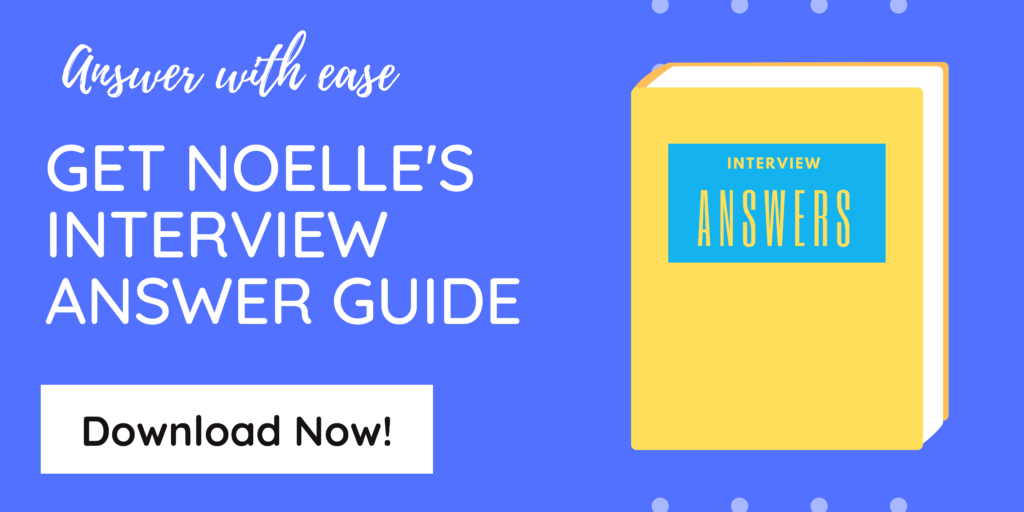There’s nothing worse than landing a job, only to realize on day one of the job, that accepting the offer was a big mistake. If you’ve been getting a funny feeling in your gut after interviewing, you’ll want to carefully consider your decision to sign the job offer letter. In this post we’ll explain why taking the wrong offer can be a huge mistake for your career, how to avoid making this mistake, and common red flags that should tell you to run the other way!
You Have More Power than You Think When Talking to Employers
Finding the right candidate for the job is an employer’s top concern when interviewing candidates. It’s true that hiring managers and recruiters will scan your resume for these red flags and potentially eliminate you based on that alone. However, it’s not always the candidate who has red flags. It’s equally important for a job searcher to vet potential employers for red flags as well. The talent market today is super competitive and employers know that. They do not want to lose a superstar candidate like you! Therefore, most employers are very open to a two-way conversation that will result in the best fit for everyone. Don’t be afraid to engage in conversation until you have all the info needed to make your decision.
Accepting the Wrong Offer Will Hurt Your Future Career Plans & Your Resume
Why is accepting the wrong offer a bad career move? After you accept the job offer, consider yourself committed for at least the next year and a half. Quitting the job earlier than this may translate to “job hopper” status on your resume in the eyes of hiring managers and recruiters. This will add one more layer of complexity to your resume for future moves and hiring conversations. IMPORTANT: you are stuck with your resume experience for the rest of your life. You can’t afford to get it wrong with a short stint that could have been avoided in the first place. Spending any less than a year and a half at a job, will harm you in the recruiter resume scan for the rest of your career. It will also become a red flag for future employers that you will have to talk your way out of!
Don’t Let Fear of Unemployment Drive Your Decisions
If you’re anything like our interview coaching clients, you feel fear and anxiety over the interview ahead. You’re afraid of messing up the interview and losing the opportunity that you so badly desire. Worse yet you’re afraid of having to return to your current job and potentially be stuck for what will seem like an eternity in your current situation. Most job seekers are afraid of not landing the job when they head into the interview. However as much as you want the job, it’s important to not let your fears cloud your judgement when it comes to a bad job scenario that potentially awaits you. While you may think you want the job more than anything, it’s equally important to know when to walk away and leave the offer on the table.
“It had been years since I interviewed for a position. I was referred to Noelle and she was great! Her questions and feedback were thought provoking. I felt much more prepared for my 3-hour interview. As a result, I was asked to come back for the final interview!” – Susan, Executive, Hospitality Industry
Trust Your Gut in the Interview
So what happens when you get that funny feeling in your gut after an interview? That funny feeling could be an indicator of a toxic situation you’re about to walk into if you take the job. No matter how much you might be in need of a job, sometimes it’s better to politely decline an offer than spend a year of your life miserable in your job. At the very least, you should try to recognize the warning signs. Knowing the warning signs will help you probe around them for clarity and make the best decision possible about whether or not to take the job. Here are the signs to watch for:
1. Job Description Confusion by Your Interviewers
The only thing worse than not knowing exactly what is expected of you, is your future managers not knowing what is expected of you. This is likely to happen in the case of a newly-created role or in the case of a team lacking in communication skills. If you find yourself interviewing with multiple people in the company; each presenting a different take on your future role, it’s time to worry. This could be a sign that the role has not been clearly defined within the company or team. The further implication after you join is a lose-lose for you because you will fail to meet everyone’s expectations due to initial misalignment of internal expectations.
EXPERT TIP:
A simple strategy to avoid this, is to interview back. Ask each person who interviews you, to provide their take on the role. This will help you get clear on the level of clarity on the team. You’ll also want to be very familiar with the job description. The job description will give you a great basis for talking points and understanding employer expectations.
2. Historic High-Turnover for Your Roles is Not a Good Sign
It’s never a good sign when every person before you has been fired from the role to which you’re applying. It could mean that every single person was incompetent OR it could mean that the role is designed to fail. This flaw in the role could be the result of poor organizational assessment, poor management or impossible expectations. Whatever the case, it’s a good idea to get a sense of who was in the role before you and why they aren’t there now. It’s perfectly fine to ask this question. However, if you feel the employer’s answer is insufficient and you want to be really sneaky about it, do some research on Linkedin. Specifically, you’ll want to find who held the role before you and how long they lasted.
3. Not Having the Opportunity to Meet Your Future Boss
Not interviewing with your future manager may seem bizarre but believe me, it happens. It’s definitely not a best practice and something to be aware of when going over the pre-interview logistics. Your future manager should definitely be amongst the people you will meet in the interview. If you are not scheduled to meet him/her, it is quite possible that your future boss is strategically being left out of the process. This is a HUGE red flag. It could mean that your future boss lacks people skills, creates a bad first impression for the company OR is not someone you want to work for. Being stuck in a role with a difficult manager, will definitely be more than enough to want to make you leave day one. It may also have been the reason for employee turnover in this role. If you don’t meet your boss, I would highly recommend RUNNING from the interview!
Keep Your Interview Conversational in Order to Pick Up On Red Flags
Important to remember: the job interview is a two-way street. The interview is as much about you interviewing the employer, as it is about the employer interviewing you. This is the quickest way to identify employer red flags before joining. Whatever you do, keep the conversation flowing. You’ll want to get your interviewer talking because the more information you have, the better. Ask questions around the team, manager’s work style, the reason for the vacancy at this time, and the employee who had the role last. Avoid asking these interview questions and you should be in good shape! Above all, always remember: it’s better to forego an offer than to accept the wrong one.



 9 Resume Red Flags and How to Fix Them
9 Resume Red Flags and How to Fix Them


